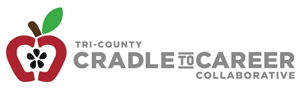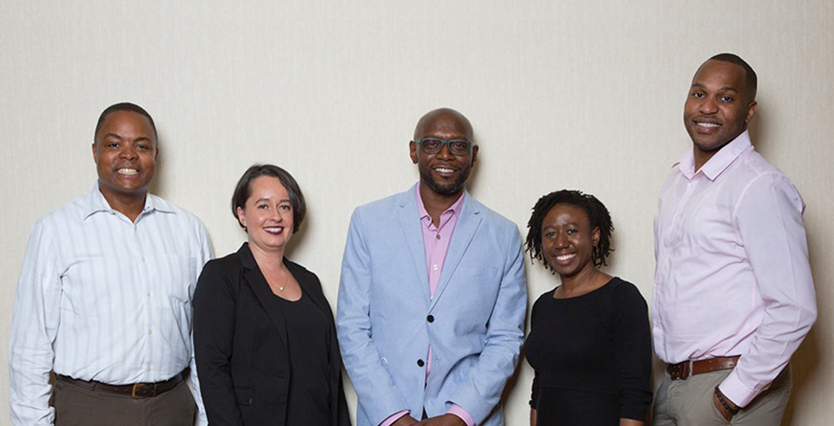With 20 years of experience leading nonprofits and serving on boards, John Read knows that strong leadership has to be priority #1 for any organization that aspires to make a meaningful difference. When he became CEO of the Tri-County Cradle to Career Collaborative (TCCC), founded in 2012, the new organization’s big mission told him he had a great deal of work to do.
The TCCC brings together community partners in the Charleston, SC region—from school districts to businesses, nonprofits, and faith-based organizations—who share the vision that “every child will graduate from high school prepared for either further education or a career in the modern workforce.”
Making that vision a reality requires constant self-examination, questioning, collaboration, and a relentless push for excellence from all stakeholders—in both strategy and execution.
Recently, the Performance Practice (formerly PIOSA) has served as a catalyst for such conversations. Rooted in a strong definition of high performance—the ability to deliver meaningful, measurable, and financially sustainable results over time—it was the perfect fit for a young, ambitious organization still finding its footing.
In 2016, John integrated questions from the Performance Practice module on board and executive leadership into an anonymous board assessment. He hoped the responses would prompt the board members—community leaders themselves—to examine their individual roles, discuss their collective performance as a board, and have meaningful conversations about the best path forward.
Strategy Update. Now.
After reviewing Performance Practice ratings and comments, the board’s governance committee made a strong recommendation to the full board: Update the organization’s strategy. Eli Poliakoff, partner at the Charleston office of law firm Nelson Mullins Riley & Scarborough, leads the committee. “The board scrutinized its role, and we found that the strategy for how to produce results was not as clear to us—or narrowly defined—as it needed to be,” he said.
To John, that was an important insight: “We’re one of more than 60 STRIVE Together sites, and, until 2016, we had only used the high-level StriveTogether Theory of Action. We had considered different methodologies for developing a more specific strategy but couldn’t come to agreement. The clear message from the board was that we needed to get on with it—fast.”
Focus on Action
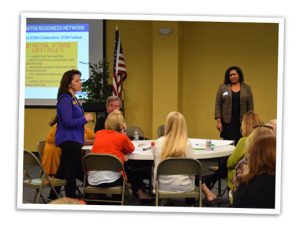 A year later, TCCC has a revised and clarified strategy thanks to working with the Performance Practice. “Revising the strategy has helped us to focus on how to produce results,” Eli said. “We’re thinking carefully about public advocacy, and focusing on the difficult issues of race, money, and equity, which are complex in the Charleston region—but we can’t shy away from them.”
A year later, TCCC has a revised and clarified strategy thanks to working with the Performance Practice. “Revising the strategy has helped us to focus on how to produce results,” Eli said. “We’re thinking carefully about public advocacy, and focusing on the difficult issues of race, money, and equity, which are complex in the Charleston region—but we can’t shy away from them.”
The Performance Practice had proven its value the first time around, so the board went through the self-assessment process again the following year. In 2017, results confirmed that members were satisfied with the new strategy and more satisfied overall. This time, issues around action emerged as the highest priority. After three years of reports to the community on disparity in outcomes based on income and race, the board wants to decide what concrete actions they and other TCCC partners should take to change the system. They like the projects that are beginning to work across the education continuum and they want to take them to scale.
No More Buzzwords
Creating regional change requires shared understanding among board members. “We have to take words like equity out of the ‘buzzword’ category and make them something people understand to their core, so every board member can articulate clearly why it matters and understand why we—as a community—have to act together,” John said.
“Equity can’t be treated as just an abstract goal or the object of philanthropy. It should hit every board member in the gut that the educational inequity in our region is an impediment to their institutions’ talent supply chains, and that we need to approach it with the same rigor as Boeing builds airplanes. This is about all of us changing our own institutions.”
“Starting a discussion with an overview of our own perceived strengths and weaknesses, as shown by our Performance Practice responses, brought to light issues that might otherwise have remained unaddressed,” Eli said. “We’ll keep using the Performance Practice annually. It prompts us to think critically about how we are working—and can work better together—to improve education in our region.”
Do you want to embark on a learning journey like John and the TCCC leadership team? The Performance Imperative and Performance Practice (formerly PIOSA) are available to you at no cost.
Last Updated: September 26, 2018
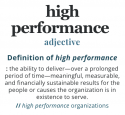
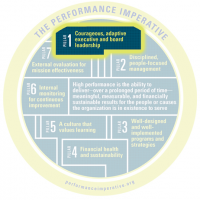
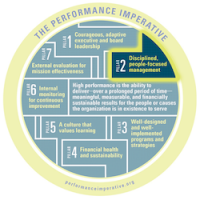
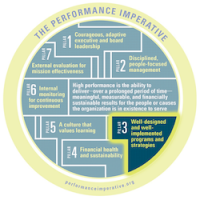
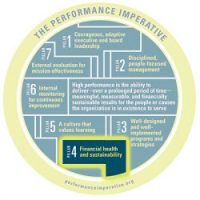
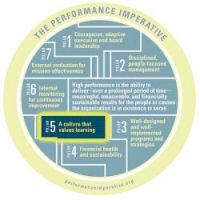
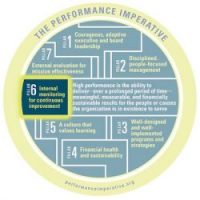
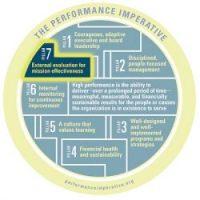
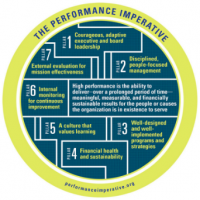
 A year later, TCCC has a revised and clarified strategy thanks to working with the Performance Practice. “Revising the strategy has helped us to focus on how to produce results,” Eli said. “We’re thinking carefully about public advocacy, and focusing on the difficult issues of race, money, and equity, which are complex in the Charleston region—but we can’t shy away from them.”
A year later, TCCC has a revised and clarified strategy thanks to working with the Performance Practice. “Revising the strategy has helped us to focus on how to produce results,” Eli said. “We’re thinking carefully about public advocacy, and focusing on the difficult issues of race, money, and equity, which are complex in the Charleston region—but we can’t shy away from them.”